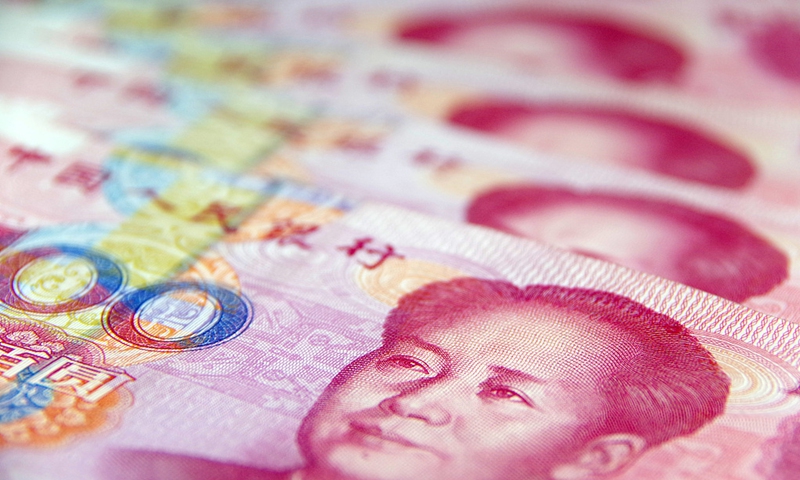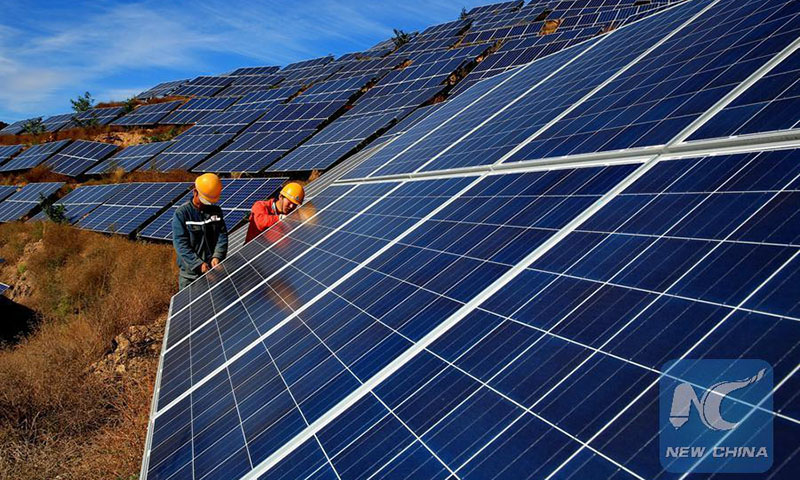Yuan's share in Russia's trade settlements expands in January, sign of steady internationalization progress

The share of the yuan in Russia's trade settlements in January further expanded, signaling steady progress for promoting the internationalization of the yuan.
Experts highlighted China's steady economic development and firm support as major advantages contributing to the yuan's global expansion, while outlining lingering challenges going forward.
The yuan accounted for 40.8 percent of Russia's export settlements and 38.5 percent of its import settlements in the first month of 2024. The settlement amounts reached $13.2 billion for exports and $9.1 billion for imports in US dollar terms, data from Russia's central bank showed on Monday.
In December 2023, the yuan accounted 35.8 percent of Russia's export settlement and 37 percent of its import settlement, Sputnik reported.
China's large and continuously growing economy has provided a solid foundation for the yuan's internationalization, and the country's ramped-up policy support for building the financial infrastructure and optimizing the mechanism for cross-border yuan settlements has created a favorable environment for promoting the internationalization of the yuan, Wang Peng, an associate research fellow at the Beijing Academy of Social Sciences, told the Global Times on Tuesday.
Wang noted that the yuan's stability has been further recognized by the international market as its exchange rate remained steady overall despite some fluctuations in recent years. This remains a significant consideration for global investors.
Cross-border yuan settlements have risen since 2009, accounting for nearly half of China's export payments and settlements. The yuan also ranks third in terms of the weight in the IMF's Special Drawing Rights basket, Lian Ping, chief economist and head of the Zhixin Investment Research Institute, told the Global Times on Tuesday.
The yuan is the world's fourth-largest payment currency, third-largest trade finance currency and fifth-largest foreign exchange trading currency, Pan Gongsheng, governor of the People's Bank of China (PBC), the central bank, told a press conference on March 6, adding that boosting the internationalization of the yuan remains the top priority for promoting high-quality financial opening-up.
Pan said that economic entities have increased internal demand for the use of the yuan, and the yuan has formed an initial network effect for international use with its continuously enhanced international monetary functions such as payments and settlements, investment and financing, and international reserves.
In December 2023, the PBC and the National Bank of Serbia signed a memorandum of understanding to establish yuan-clearing arrangements in Serbia, which will help enterprises and financial institutions of the two countries use the yuan for cross-border transactions and further promote bilateral trade and investment facilitation.
Amid the steady progress achieved for the internationalization of the yuan, experts vowed to tackle lingering challenges, which will contribute to deepen China's financial opening-up.
Both Wang and Lian stressed the importance of continuously expanding the yuan's global usage and market share, as it still has a large gap with major global currencies such as the US dollar and the euro.
Wang noted that China's financial market has further space for opening-up to meet global investors' demand, while more optimized regulations should be formulated to protect investors' rights.
Lian noted that measures such as prudently promoting capital account convertibility for the yuan and its internationalization, while maintaining the basic stability of the yuan's exchange rate and an overall surplus in the balance of payments, will be significant for bolstering the financial sector's high-quality opening-up.





